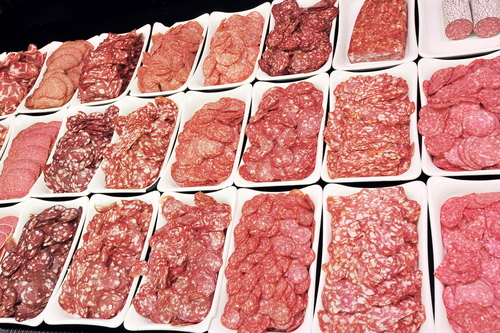Processed meat and salt in food safety firing line
 The cancer risks associated with eating processed meats is complicated and dependent on other factors as well, the Dutch processed meats association said on Monday.
The cancer risks associated with eating processed meats is complicated and dependent on other factors as well, the Dutch processed meats association said on Monday.
The VNV was responding to new recommendations from the World Health Organisation which has put some types of processed meat into the highest possible carcenogenic category.
The risk ‘depends on other factors, such as age, genes, diet, life style and surroundings,’ the VNV said. ‘The Dutch eat an average of 20 grammes of processed meat a day, which is well below the 50 grammes considered to be excessive.’
The WHO’s report on the cancer risk attached to eating meat states that red meat is ‘probably carcinogenic to humans and processed meat is carcinogenic to humans.’ In particular, meats with a strong taste such as tinned meat and sausages pose a risk.
In addition, the VNV points out that processed meats contain protein, vitamins and iron, which are difficult to find in sufficient quantities in other foods consumed on a daily basis.
Salt
At the same time, the Dutch public health committee RIVM has published research showing that halving the amount of salt people eat has a significant impact on health.
The researchers used statistical models to show that halving salt consumption would prevent 30,000 heart attacks and 53,000 strokes over the next 20 years.
Both consumers and manufacturers need to work together to reduce salt intake, the RIVM said. The recommended daily maximum salt intake in the Netherlands is six grammes.
Thank you for donating to DutchNews.nl.
We could not provide the Dutch News service, and keep it free of charge, without the generous support of our readers. Your donations allow us to report on issues you tell us matter, and provide you with a summary of the most important Dutch news each day.
Make a donation